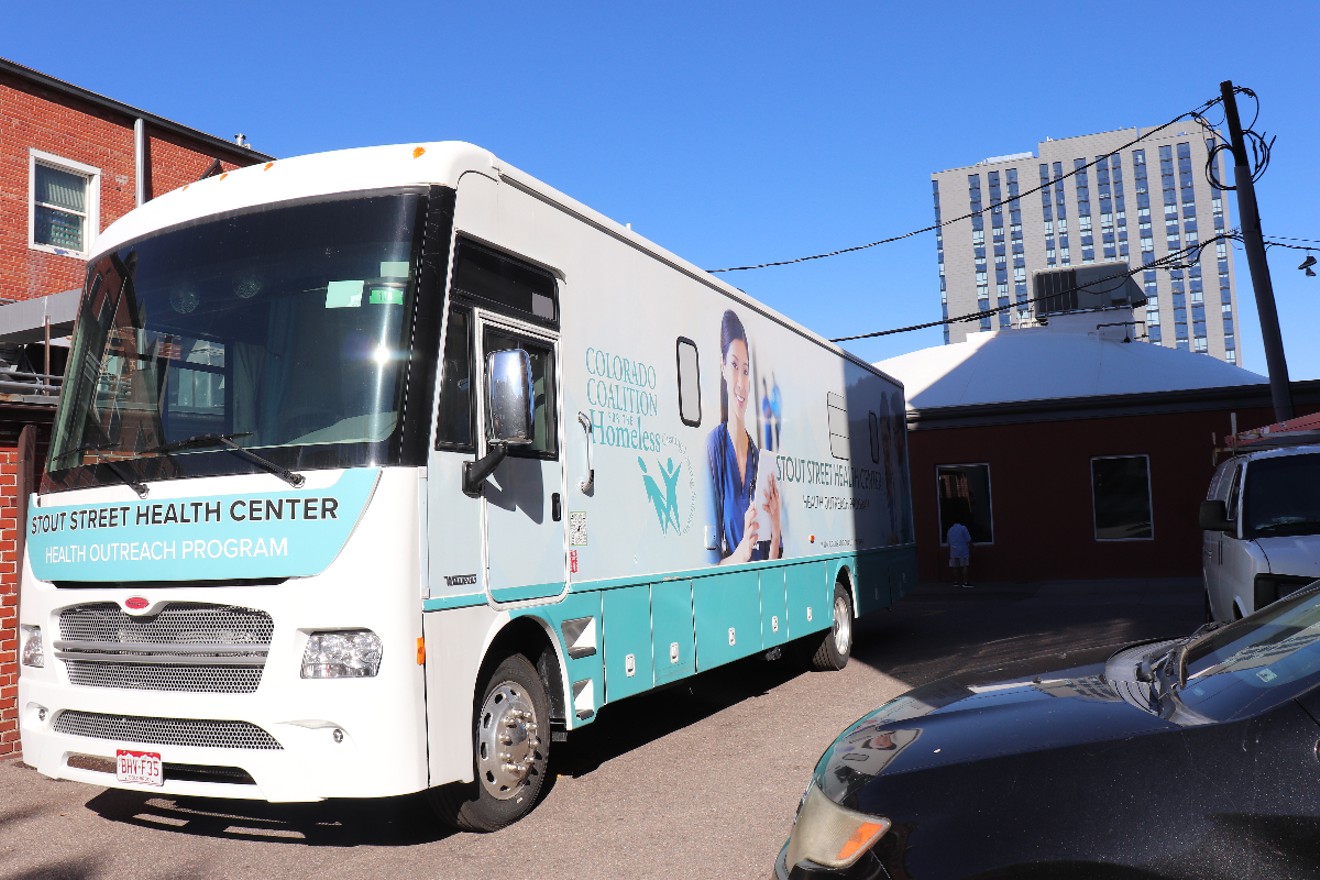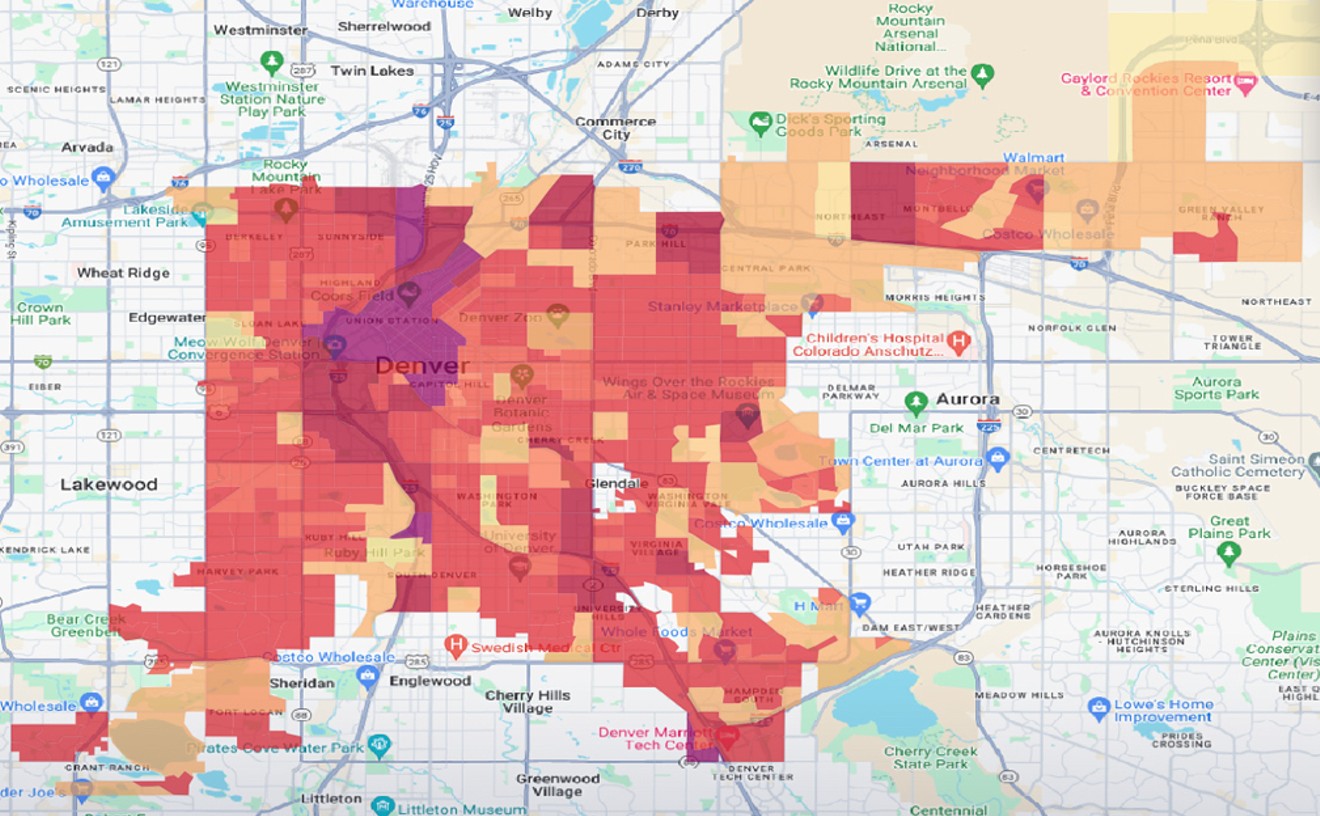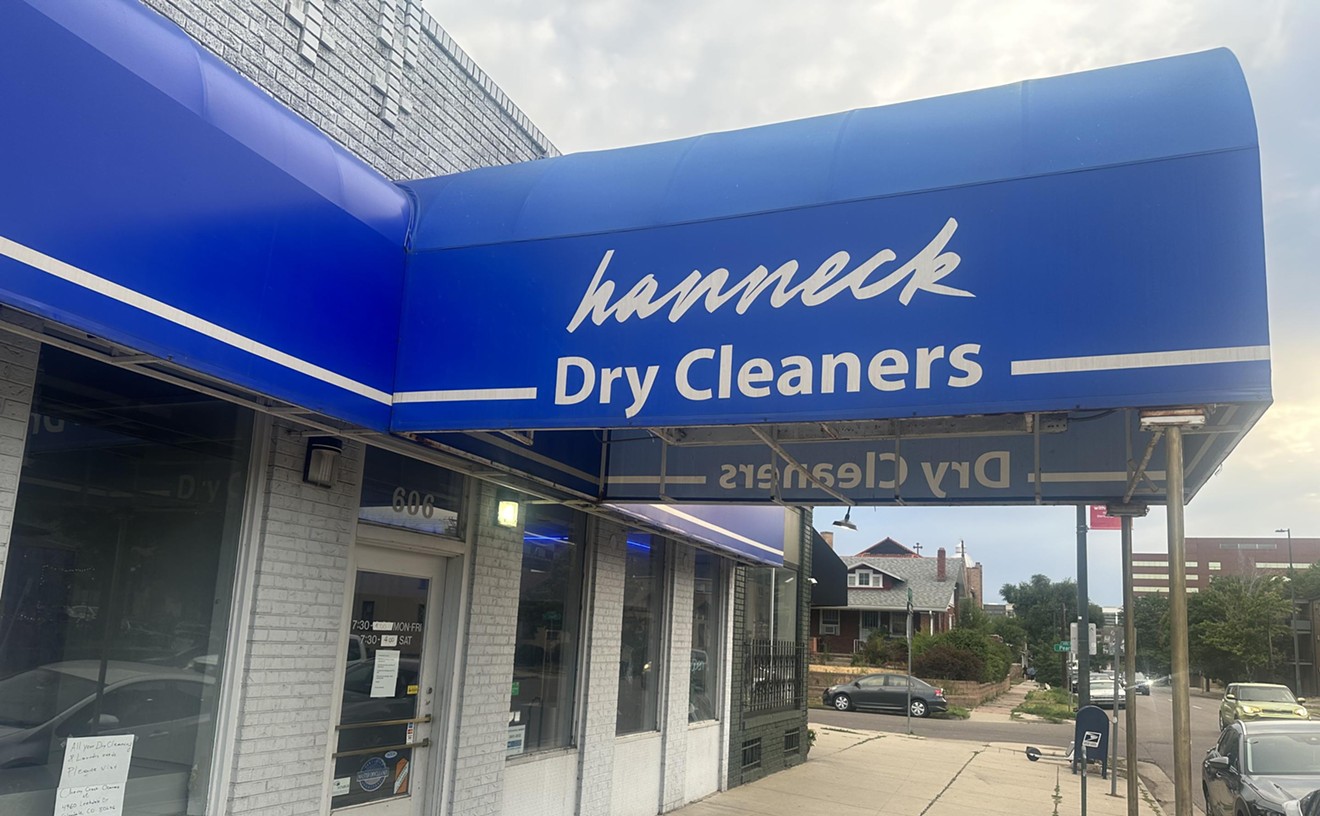At his first town hall after being elected mayor of Denver, Mike Johnston said that he'd need the help of the Colorado Coalition for the Homeless in order to fulfill his promise to end homelessness in his first term.
Now the role that the CCH will play is becoming clearer, including providing specific programs at the micro-communities that Johnston hopes will allow him to house 1,000 people before the end of the year.
The nonprofit will send its Health Outreach Program vehicle to different micro-communities to offer the residents primary health-care services, according to spokesperson Cathy Alderman. The mobile outreach center looks like an RV from the outside and like a doctor's office on the inside. CCH has been using the vehicle for more than twenty years to offer clinical services such as physicals along with non-clinical services including case management and enrolling people in Medicaid.
"We'll have clinical and non-clinical staff on the van who can provide primary-care services, in some instances maybe even dental services, behavioral health, substance-abuse treatment services," Alderman says. "But [we want] to start building relationships with the people in micro-communities so they can get services through our mobile clinic."
The primary-care services that the HOP can offer include "a regular physical, just checking to make sure everything's working okay, but they can also help manage chronic health conditions like diabetes or asthma or heart conditions," she notes.
"They can help prescribe medications, they can [suggest], 'Here are the things you need to do to address this health condition, here's how frequently you need to see a doctor,'" Alderman explains. "We think of primary care as really that basic health care for the limbs and body."
The HOP will stop by micro-communities on a "regularly scheduled basis," Alderman says. CCH is still working out the specific schedule, "but it may be one on Tuesdays and one on Wednesdays and one on Thursdays." The city has only announced three micro-community sites as under construction, but at least four are fenced off with excavation underway.
CCH hopes to start offering services as soon as December 1, but "we do need to hire some more folks," Alderman says. The staffers who will initially offer clinical services will be those already working at CCH's Stout Street Health Center. An $850,000 one-year contract passed by Denver City Council on November 20 will help cover the cost of hiring non-clinical staff and other expenses not covered by Medicaid or Medicare.
In preparation for House1000, the city has recently finalized contracts with other homeless service providers. City council has approved, or will soon vote on, contracts with organizations including the Colorado Village Collaborative, the Salvation Army, the Gathering Place and Bayaud Enterprises to help run Johnston's micro-communities.
CCH is led by Britta Fisher, who headed the city's Department of Housing Stability until earlier this year. Denver spends about $30 million a year in contracts with CCH, according to the Denver Department of Finance. It has a handful of other active contracts with the nonprofit, including one-time contracts to acquire the former Clarion Inn for $10 million and the La Quinta Inn for $5 million. Both are in the Globeville area.
"We operate a very large health center, and we constantly have vacancies. We're in a continual process of hiring, training and putting folks into service," Alderman says. "That process will step up in the next couple of weeks to make sure that we're staffed up appropriately to serve both the micro-communities and the clients that come into the Stout Street Health Center."
The Stout Street Center, at 2130 Stout Street, currently offers the same type of care that CCH envisions for the HOP. The Colorado Coalition for the Homeless, which started in 1985 as a health-care provider, serves more than 15,000 adults and children a year at that location.
The Denver Department of Public Health & Environment has a service similar to the HOP: The Wellness Winnie (short for Winnebago), which offers vaccines, disease testing and mental health support — but not the kind of clinical primary care or mental health care services that CCH provides.
The HOP can already be seen outside shelters, food banks and encampments, offering free health-care services. "We try to have it available in the community so people can come in," Alderman says. "This is going to be a little bit more targeted, so now we're going to be going out to these micro-communities."
The city's contract with CCH runs until the end of 2024, but Alderman believes that micro-communities will be around longer than that — as will the need for the HOP'S services.
"It depends on the existence of the micro-communities, how many are still operational by the end of 2024," she says. "I'm guessing we're going to have more micro-communities at the end of 2024 than we have today, because we still don't have enough housing for all those individuals to move into."
[
{
"name": "Air - MediumRectangle - Inline Content - Mobile Display Size",
"component": "12017618",
"insertPoint": "2",
"requiredCountToDisplay": "2",
"watchElement": ".fdn-content-body",
"astAdList": [
{
"adType": "rectangle",
"displayTargets": "mobile"
}
]
},{
"name": "Editor Picks",
"component": "17242653",
"insertPoint": "4",
"requiredCountToDisplay": "1",
"watchElement": ".fdn-content-body",
"astAdList": [
{
"adType": "rectangle",
"displayTargets": "desktop|tablet"
},{
"adType": "rectangle",
"displayTargets": "desktop|tablet|mobile"
}
]
},{
"name": "Inline Links",
"component": "18838239",
"insertPoint": "8th",
"startingPoint": 8,
"requiredCountToDisplay": "7",
"maxInsertions": 25
},{
"name": "Air - MediumRectangle - Combo - Inline Content",
"component": "17261320",
"insertPoint": "8th",
"startingPoint": 8,
"requiredCountToDisplay": "7",
"maxInsertions": 25,
"watchElement": ".fdn-content-body",
"astAdList": [
{
"adType": "rectangle",
"displayTargets": "desktop|tablet"
},{
"adType": "rectangle",
"displayTargets": "desktop|tablet|mobile"
}
]
},{
"name": "Inline Links",
"component": "18838239",
"insertPoint": "8th",
"startingPoint": 12,
"requiredCountToDisplay": "11",
"maxInsertions": 25
},{
"name": "Air - Leaderboard Tower - Combo - Inline Content",
"component": "17261321",
"insertPoint": "8th",
"startingPoint": 12,
"requiredCountToDisplay": "11",
"maxInsertions": 25,
"watchElement": ".fdn-content-body",
"astAdList": [
{
"adType": "leaderboardInlineContent",
"displayTargets": "desktop|tablet"
},{
"adType": "tower",
"displayTargets": "mobile"
}
]
}
]












